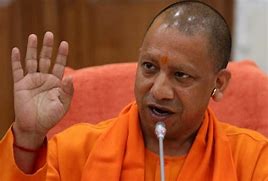Feature
BSP chief Mayawati resigns from Rajya Sabha membership

New Delhi: BSP chief Mayawati on Tuesday resigned from the Rajya Sabha, accusing the BJP of preventing her from speaking in the House on issues close to her heart like the cause of depressed sections particularly Dalits.
“I had wanted to raise issues in the morning relating to Dalits and about the atrocities committed on them in Saharanpur’s Shabirpur village. But you saw the way the treasury benches, including ministers, behaved and prevented me from speaking. When I cannot convey what I want to, then I thought it is not okay.
“I decided I will resign. I have just met the Rajya Sabha Chairman (Hamid Ansari) and I have handed over my resignation from the House,” she told reporters.
Mayawati has given a three-page resignation letter to Ansari which officials say may not be accepted because members quitting Parliament are expected to submit their resignation in a simple format and without conditions.
Mayawati, whose six-year term was to end in April next year, said when she was on her way to submit the resignation, leaders of the UPA requested her not to resign saying her strong voice was needed in the House.
“I am thankful to them but I have decided to stick to my decision,” she said.
The Leader of Opposition in the Rajya Sabha, Ghulam Nabi Azad, criticised the treasury benches and ministers for not allowing Mayawati to raise issues of concern to her.
“I tried to persuade her from not resigning but I think she had already made up her mind,” he said after Mayawati’s resignation.
The BSP has five more members in the Rajya Sabha. Mayawati, 61, lost power in Uttar Pradesh in 2012 and her party was routed in this year’s assembly elections, winning 19 seats in the 402-member House.
Earlier, Mayawati stormed out of the Rajya Sabha threatening to quit when she was not allowed to speak beyond three minutes over “atrocities on Dalits”.
She demanded a discussion over the issue but Deputy Chairman P.J. Kurien told her she had already made her demand for a full discussion and should let the House conduct its business.
Launching a scathing attack against the BJP government in Uttar Pradesh and Modi-led central government, she said both remained “mute spectators” to the violence targeting Dalits in Saharanpur in May when their houses were torched and 15 Dalits injured.
She said BSP leaders were not even allowed to visit the affected families.
As Kurien sought to stop Mayawati, she said: “If I am not allowed to talk, if I cannot represent the section of the society I belong to, if I am not allowed to put across my views on atrocities on Dalits, then there is no point in staying in the House. I will resign.”
The veteran politician then walked out in anger.
The former Uttar Pradesh Chief Minister said she was following B.R. Ambedkar’s example of having resigned as the Law Minister when he was not allowed to speak and table the Hindu Code Bill.
Minister of State for Parliamentary Affairs Mukthar Abbas Naqvi said Mayawati had insulted the chair by threatening to resign. “She must apologise.”
Congress leader Azad supported Mayawati and took objection to Naqvi’s remarks.
“When Mayawati tried to talk, she was told we have got the mandate. We did not know the BJP has got the mandate to massacre minorities and Dalits,” an angry Azad said, amid interruptions by the treasury benches.
He said the Congress had moved an adjournment notice for farmers, Dalits and minorities and accused the government was gagging the opposition.
Azad and other Congress members too later walked out of the House.
CPI-M leader Sitaram Yechury also said points made by Mayawati were “serious”.
Amid noisy scenes, Kurien adjourned the House till noon. When the house met then, the disruption continued and the house was adjourned till 2 p.m. and later till 3.
When the house met at 3, some Congress members again came to the podium and raised slogans. The House was adjourned for the day.
Entertainment
Meghalaya Reserves Legalized Gambling and Sports Betting for Tourists

The State Scores Extra High on Gaming-Friendly Industry Index
Meghalaya scored 92.85 out of 100 possible points in a Gaming Industry Index and proved to be India’s most gaming-friendly state following its recent profound legislation changes over the field allowing land-based and online gaming, including games of chance, under a licensing regime.
The index by the UK India Business Council (UKIBC) uses a scale of 0 to 100 to measure the level of legalisation on gambling and betting achieved by a state based on the scores over a set of seven different games – lottery, horse racing, betting on sports, poker, rummy, casino and fantasy sports
Starting from February last year, Meghalaya became the third state in India’s northeast to legalise gambling and betting after Sikkim and Nagaland. After consultations with the UKIBC, the state proceeded with the adoption of the Meghalaya Regulation of Gaming Act, 2021 and the nullification of the Meghalaya Prevention of Gambling Act, 1970. Subsequently in December, the Meghalaya Regulation of Gaming Rules, 2021 were notified and came into force.
All for the Tourists
The move to legalise and license various forms of offline and online betting and gambling in Meghalaya is aimed at boosting tourism and creating jobs, and altogether raising taxation revenues for the northeastern state. At the same time, the opportunities to bet and gamble legally will be reserved only for tourists and visitors.
“We came out with a Gaming Act and subsequently framed the Regulation of Gaming Rules, 2021. The government will accordingly issue licenses to operate games of skill and chance, both online and offline,” said James P. K. Sangma, Meghalaya State Law and Taxation Minister speaking in the capital city of Shillong. “But the legalized gambling and gaming will only be for tourists and not residents of Meghalaya,” he continued.
To be allowed to play, tourists and people visiting the state for work or business purposes will have to prove their non-resident status by presenting appropriate documents, in a process similar to a bank KYC (Know Your Customer) procedure.
Meghalaya Reaches Out to a Vast Market
With 140 millions of people in India estimated to bet regularly on sports, and a total of 370 million desi bettors around prominent sporting events, as per data from one of the latest reports by Esse N Videri, Meghalaya is set to reach out and take a piece of a vast market.
Estimates on the financial value of India’s sports betting market, combined across all types of offline channels and online sports and cricket predictions and betting platforms, speak about amounts between $130 and $150 billion (roughly between ₹9.7 and ₹11.5 lakh crore).
Andhra Pradesh, Telangana and Delhi are shown to deliver the highest number of bettors and Meghalaya can count on substantial tourists flow from their betting circles. The sports betting communities of Karnataka, Maharashtra, Uttar Pradesh and Haryana are also not to be underestimated.
Among the sports, cricket is most popular, registering 68 percent of the total bet count analyzed by Esse N Videri. Football takes second position with 11 percent of the bets, followed by betting on FIFA at 7 percent and on eCricket at 5 percent. The last position in the Top 5 of popular sports for betting in India is taken by tennis with 3 percent of the bet count.
Local Citizens will Still have Their Teer Betting
Meghalaya residents will still be permitted to participate in teer betting over arrow-shooting results. Teer is a traditional method of gambling, somewhat similar to a lottery draw, and held under the rules of the Meghalaya Regulation of the Game of Arrow Shooting and the Sale of Teer Tickets Act, 2018.
Teer includes bettors wagering on the number of arrows that reach the target which is placed about 50 meters away from a team of 20 archers positioned in a semicircle.
The archers shoot volleys of arrows at the target for ten minutes, and players place their bets choosing a number between 0 and 99 trying to guess the last two digits of the number of arrows that successfully pierce the target.
If, for example, the number of hits is 256, anyone who has bet on 56 wins an amount eight times bigger than their wager.






























